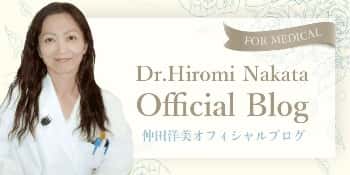目次
www.cancer.gov/about-cancer/screening/patient-screening-overview-pdq
これは,アメリカのNCI 国立がん研究所の出しているものです.
このテーマに一番関係しているのは,一番下なので,そこだけ訳しておきます.
しかし.アメリカはきちんとこうした情報を国民にNCIやNIHが出していますね.素晴らしいです.
これを見ると,「がんは早期発見・早期治療で治る」というのは,本当ではないのでしょう.
世の中,近藤誠,アンチ近藤誠,となっていますが.
そういう問題ではないのでは?
本質が何か?を考えることをしないといけないですね.
そもそも.医療保険の売り方を見ると
「がんは早期発見・早期治療することにより治る病気になりました」とか
「医学の進歩により,身体への悪影響を抑えた高度な治療ができる時代になりました」
「高度な治療には高額の費用がかかります」とうたい
「先進医療」を付加した保険に加入していれば安心というイメージを振りまいています.
そういうキャンペーンに乗せられて
エビデンスのない【早期発見早期治療がベスト】が神話になってしまったのではないでしょうか?
アメリカが何でも良いわけではありませんが,少なくともエビデンスに基づいてしっかり情報開示しています.
素晴らしいと思います.
Cancer Screening Overview (PDQ®)
SECTIONS
- What Is Cancer Screening?
- What Is Informed and Shared Decision-Making?
- What Are the Goals of Screening Tests?
- Who Needs to Be Screened?
- How is Cancer Risk Measured?
- Does Screening Help People Live Longer?
- How do Screening Tests Become Standard Tests?
- Changes to This Summary (10/22/2015)
- About This PDQ Summary
- Questions or Comments About This Summary
- Get More Information From NCI
- View All Sections
What Is Cancer Screening?
KEY POINTS
- Cancer screening is looking for cancer before a person has any symptoms.
- There are different kinds of screening tests.
- Screening tests have risks.
- Some screening tests can cause serious problems.
- False-positive test results are possible.
- False-negative test results are possible.
- Finding the cancer may not improve the person’s health or help the person live longer.
Cancer screening is looking for cancer before a person has any symptoms.
Screening tests can help find cancer at an early stage, before symptomsappear. When abnormal tissue or cancer is found early, it may be easier to treat or cure. By the time symptoms appear, the cancer may have grown and spread. This can make the cancer harder to treat or cure.
It is important to remember that when your doctor suggests a screening test, it does not always mean he or she thinks you have cancer. Screening tests are done when you have no cancer symptoms.
There are different kinds of screening tests.
Screening tests include the following:
- Physical exam and history: An exam of the body to check general signs of health, including checking for signs of disease, such as lumps or anything else that seems unusual. A history of the patient’s health habits and past illnesses and treatments will also be taken.
- Laboratory tests: Medical procedures that test samples of tissue, blood, urine, or other substances in the body.
- Imaging procedures: Procedures that make pictures of areas inside the body.
- Genetic tests: Tests that look for certain gene mutations (changes) that are linked to some types of cancer.
Screening tests have risks.
Not all screening tests are helpful and most have risks. It is important to know the risks of the test and whether it has been proven to decrease the chance of dying from cancer.
Some screening tests can cause serious problems.
Some screening procedures can cause bleeding or other problems. For example, colon cancer screening with sigmoidoscopy or colonoscopy can cause tears in the lining of thecolon.
False-positive test results are possible.
Screening test results may appear to be abnormal even though there is no cancer. A false-positive test result (one that shows there is cancer when there really isn’t) can causeanxiety and is usually followed by more tests and procedures, which also have risks.
False-negative test results are possible.
Screening test results may appear to be normal even though there is cancer. A person who receives a false-negative test result (one that shows there is no cancer when there really is) may delay seeking medical care even if there are symptoms.
Finding the cancer may not improve the person’s health or help the person live longer.
Some cancers never cause symptoms or become life-threatening, but if found by a screening test, the cancer may be treated. There is no way to know if treating the cancer would help the person live longer than if no treatment were given. In both teenagers and adults, there is an increased risk of suicide in the first year after being diagnosed with cancer. Also, treatments for cancer have side effects.
For some cancers, finding and treating the cancer early does not improve the chance of a cure or help the person live longer.
決して症状を来たさず,生命予後に影響も与えないがんもありますが,検診で発見されたら,治療されるでしょう.
無治療と比べて,治療したことで長く生きるということにつながったのかについて知ることは出来ません.
10代でも大人でも,がんと診断された1年間の自殺の危険性は増加します.
また,がんの治療は有害事象もあります.



